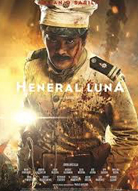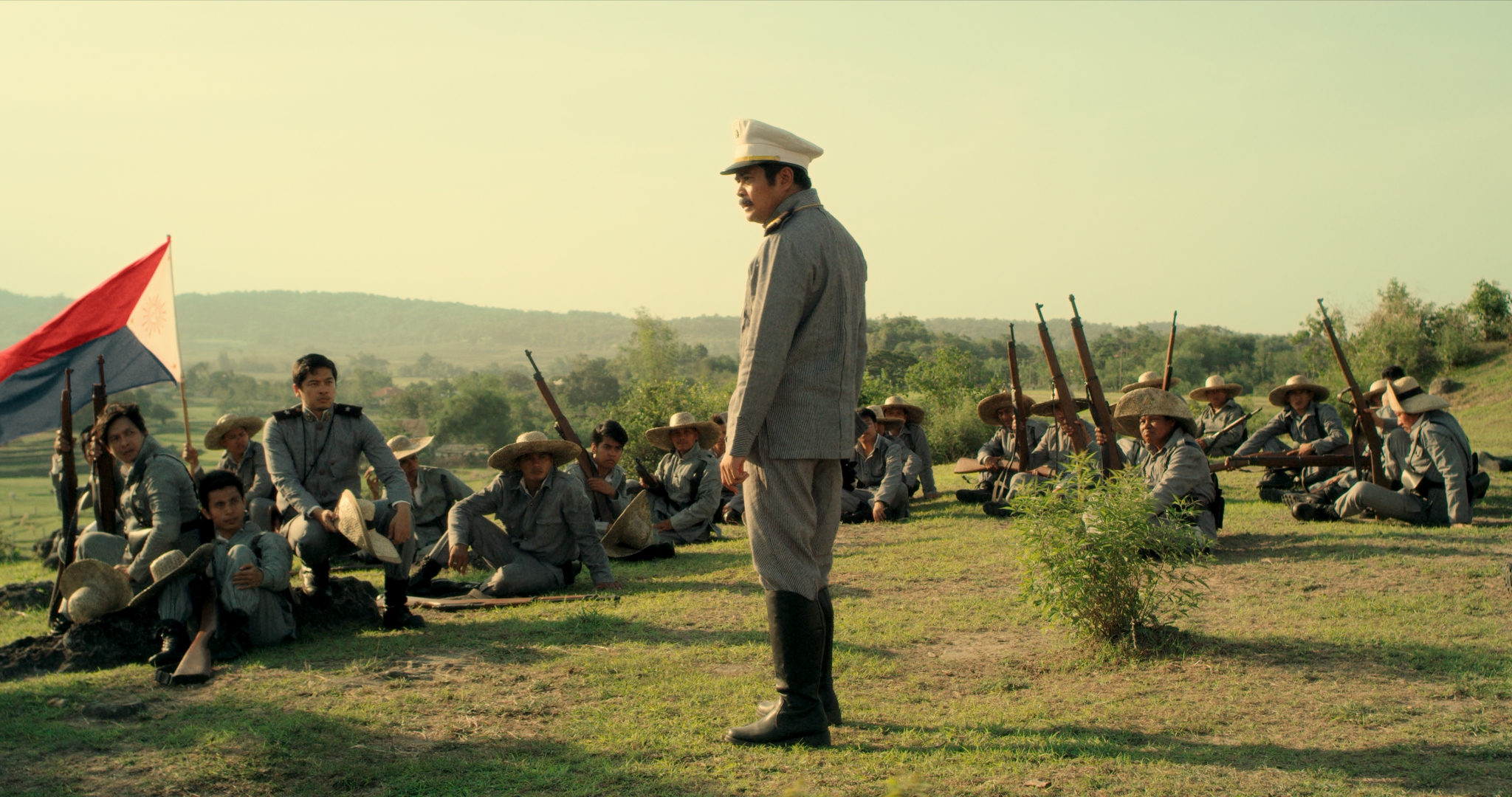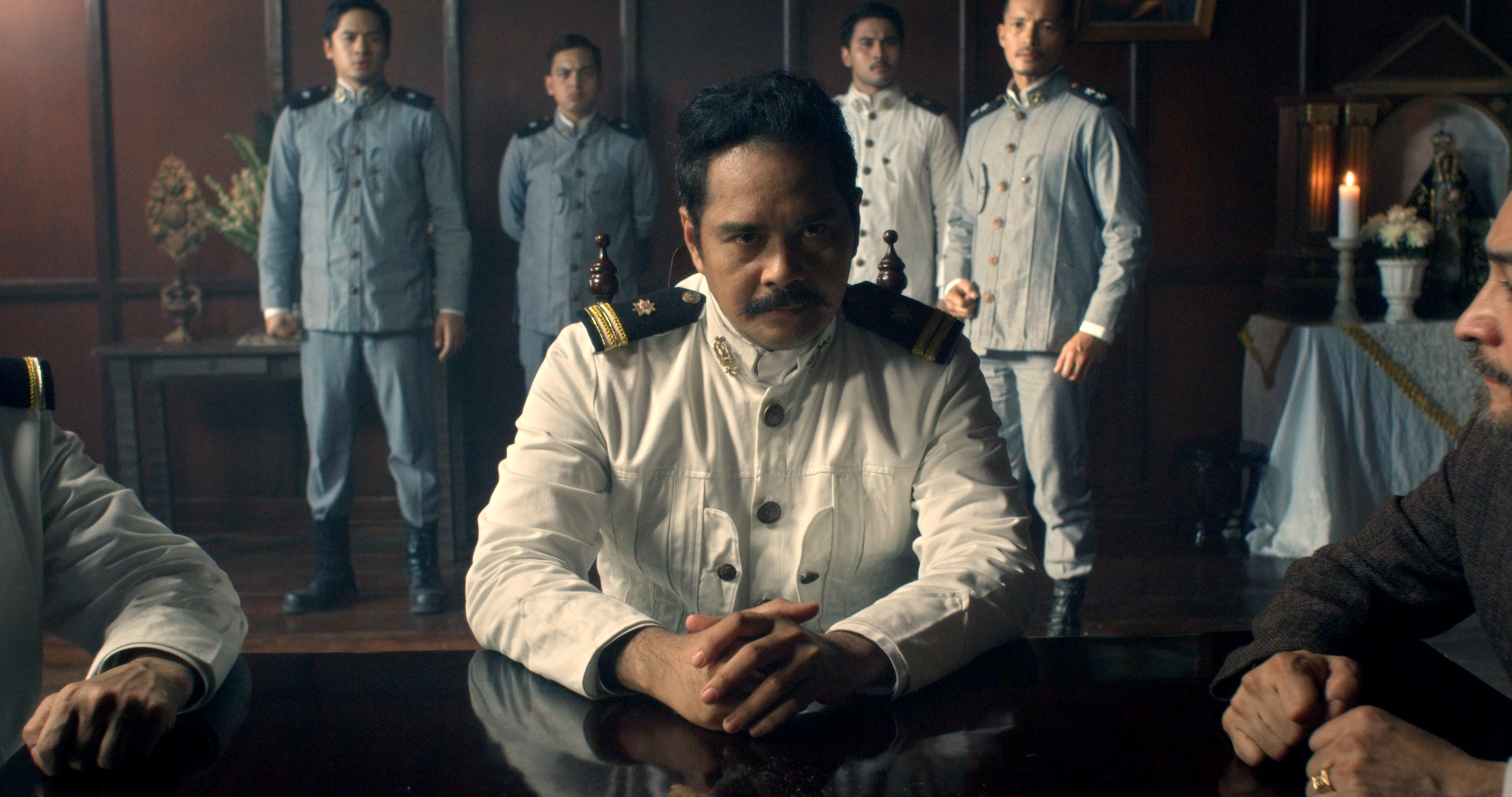Interview: The Star of Philippines' Oscar Submission 'Heneral Luna' on the Subjectivity of History
 Sunday, November 8, 2015 at 10:30AM
Sunday, November 8, 2015 at 10:30AM  Jose here. Since its release in the Philippines, historical epic Heneral Luna has been shattering box office record after record, not only managing to break even in almost no time, but also drawing very young audiences, some of whom might have taken advantage of a half-off student discount (take note Hollywood!). The film which chronicles the campaign by General Antonio Luna to combat American invaders in the late 19th century is directed with flair by Jerrold Tarog. Thanks to its commercial and critical success not only did it open Stateside in late October, it was selected by the Philippines as their official Oscar submission.
Jose here. Since its release in the Philippines, historical epic Heneral Luna has been shattering box office record after record, not only managing to break even in almost no time, but also drawing very young audiences, some of whom might have taken advantage of a half-off student discount (take note Hollywood!). The film which chronicles the campaign by General Antonio Luna to combat American invaders in the late 19th century is directed with flair by Jerrold Tarog. Thanks to its commercial and critical success not only did it open Stateside in late October, it was selected by the Philippines as their official Oscar submission.
The star John Arcilla gives a ferocious lead performance as the titular army officer.
Arcilla is one of the Philippines’ most respected actors, having made a name for himself as a star across television, stage and film. In America, he will be best known for a supporting performance in The Bourne Legacy, and his terrific work in Metro Manila, but as shown in Heneral Luna he can carry an entire epic on his shoulders. Despite the terrible reception that kept interrupting our phone interview, Arcilla also proved to be an incredibly insightful conversationalist, making remarks that made me wish I could sit down and talk history and politics with him for an entire afternoon. We talked about his process when playing historical characters, remembering the subjectivity of history and what an Oscar nomination might bring the film.
full interview after the jump...
JOSE: You’d played a historical figure before in El Presidente. Were you intimidated by the idea of playing Antonio Luna in a film?
JOHN ARCILLA: In El Presidente I just have a small role as Mariano Trías.
JOSE: Someone who in a way is the opposite of Luna in terms of beliefs.
JOHN ARCILLA: As an actor I consider myself as a lawyer in how every client is not guilty, so just have to work on my character like a lawyer, I have to trust my character even if I don’t share his beliefs, in this case when it came to the Philippines’ Revolution. Trías was my client so to speak, so I had to play him diligently and I have to believe in his reasons for being on Emilio Aguinaldo’s side.
Is that how you approached Luna as well?
That’s how I deal with any character really. I believe in Antonio Luna’s character. When it comes to difficulty there’s no such thing as it being more difficult to play a character whose beliefs I don’t share, than someone I sympathize with. I still have to learn Luna’s frustrations and anxieties, and where are they coming from. They’re still human beings. The only different thing when it comes to intentions is their end result, Trías in El Presidente thinks he’s right for instance, and as an actor I should not oppose that feeling.
That’s a fascinating insight.
The character lies in what you fill in the blanks, their emotions are the same, their confusion is the same, even the people you sympathize with can be confused.
You’re also well known for playing real life people by now.
Yes, I’ve played many real life characters in plays in the Philippines, there are a lot of gifts along the way, I had already played José Rizal and other characters in a musical trilogy by Ryan Cayabyab. I’d already played Aguinaldo and Bonifacio in my younger years. So I can relate to the era, I just need to think about the character I’ll be playing. I have to think about their backstories, for instance if I’m playing Bonifacio and Luna, even both are temperamental they have different backgrounds, Bonifacio is a breadwinner, he belongs to a different status in society, while Luna is a pampered guy, he studied in Europe, he got a doctorate. Their social status is different so the characters must reflect that.

There’s a campaign to have Heneral Luna shown in schools, but this can be a double edged sword given how movies often tend to bend history for dramatic purposes. What measures do you think filmmakers should take if governments want to teach history through films?
(Laughs) Jose, textbooks by authors all are interpretations, they all have their agendas. It always depends on whose account they’re writing for, are they for the colonizer or for the country being colonized? It is not very easy to gauge that, it’s said that the ones who write history are the ones who hand out the heroes, writers won’t put themselves in controversy but they can put the subject of their history in chain. I don’t think it’s something that has to do with the medium. We all have to talk about history, whether it’s film or text. You’re right, in history executed by victors you’re putting a picture to things that might have not occurred, or maybe events are told in a more sensationalized way. We also have to be careful with text though. This is a subject that really needs an intelligent discussion.
I could not agree more with you.
We need to be careful of what texts we read. That’s why at the beginning of Heneral Luna we explain the film is a combination of imagination and fact. When a student reads a history book they imagine what that history would have looked like, and we wanted the film to reflect that.
How does it feel to have the film be your country’s official Oscar selection?
Isn’t it ironic that a film about someone who was trying to fight American invaders is trying to get a nomination for an American film award? But one thing is the character and another thing is the film, and I think it would be great to be validated as good filmmakers in the eye of Oscar because American filmmaking is legendary. After all Americans pretty much invented film and made it popular, but it also has to be said that I don’t believe there are any countries which are better than others when it comes to filmmaking. People in the Philippines can make films just as good as the ones in America, and if we got a nomination it should serve people to remember that, also it would help from a marketing angle. But truly we are all the same when it comes to good filmmaking. No one is better than the rest.

Heneral Luna is now in theaters. Previous interviews




Reader Comments (5)
awesome! i did not expect this post. :)
I'm pressed Segurista and Babae Sa Septic Tank never got nominated.
Thanks so much for this! It's be amazing to see if the Philippines can finally land a nom and show they're just at good at filmmaking as other countries!
I didn't know John Arcilla can this be eloquent. Maybe it depends on the questions being asked. While I enjoyed Heneral Luna, I don't think it's Osar caliber. But I agree with what he said about filmmaking in the US and in other countries. That each country is capable of good filmmaking.
John Arcilla is most nice actor i appreciate that acting in films. he did nice job. that's why he deserve the Oscar awards. thanks for sharing interesting interview. keep it up.